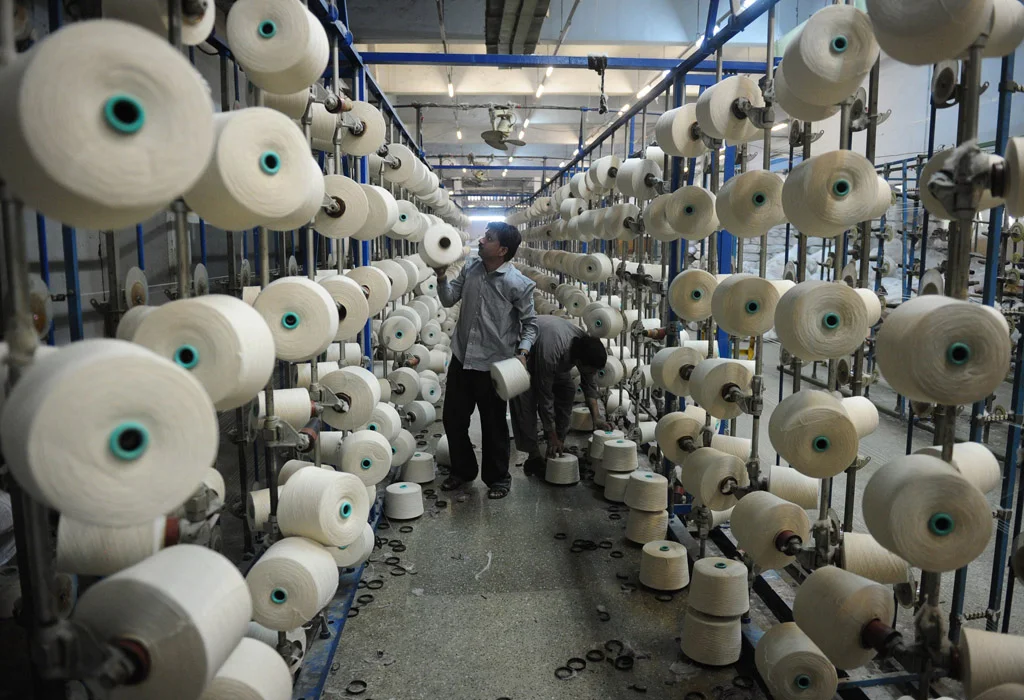- Web
- Feb 05, 2026
Textile leaders urge swift action on Rs329.5 billion refunds to boost exports
-

- Web Desk Karachi
- Mar 07, 2025

ISLAMABAD: In a meeting on Thursday, textile leaders urged Finance Minister Muhammad Aurangzeb to expedite the release of pending refunds totalling Rs329.5 billion to address troubling export trends and revive the crucial textile sector.
The delegation from the All Pakistan Textile Mills Association (Aptma), led by Chairman Kamran Arshad, presented various challenges faced by textile exporters, pressing the need for immediate policy interventions.
Arshad highlighted the pressing issue of pending refunds, which have led to a severe liquidity crunch within the sector.
Among the outstanding refunds, Rs105 billion pertains to deferred sales tax, Rs100 billion to income tax, and Rs55 billion to sales tax, with the remainder encompassing other tax categories.
The prolonged delays in these payments have eroded trust in the government and diminished confidence in prospective initiatives, given the substantial unpaid dues.
The textile leaders made three key demands to bolster the industry’s competitiveness and combat the ongoing deindustrialization in the spinning sector.
Pakistan’s textile exports surge 10.44 per cent in first four months of FY25
They called for the restoration of zero-rating on locally produced raw materials and inputs for exports under the Export Facilitation Scheme (EFS), with a return to levels established in June 2024.
Additionally, Aptma called for an 18 percent sales tax on imported raw materials within the EFS. The Pakistan Textile Exporter Association supported calls to expand the scheme’s scope to accommodate domestic trade and reduce the consumption period to one year, while suggesting that non-exporting enterprises or commercial importers be excluded from the scheme.
A point of significant concern raised during the meeting was the high cost of energy, which has become a major barrier to the competitiveness of Pakistan’s textiles. Energy costs represent 35-55 percent of conversion expenses in upstream operations compared to less than 20 percent in competing markets. Aptma also called for electricity to be supplied at a rate of 9 cents/kWh and gas at $9/mmBtu, which would help enhance international competitiveness.
Moreover, the association also requested the procurement of 35 new domestic gas discoveries through competitive bidding under a third-party access framework, along with permits allowing exporters to import LNG directly.
They proposed that Aptma be permitted to import LNG through third-party access at an ex-delivery price of $9/mmBtu. Additionally, they sought the removal of a Rs100 billion cross-subsidy embedded in industrial power tariffs and advocated for B2B power contracts accompanied by reasonable wheeling charges, suggesting a finalized wheeling charge of Rs5/kWh, excluding unrelated legacy grid costs.
In response, Finance Minister Aurangzeb reiterated the government’s commitment to addressing critical issues surrounding taxation, energy, and financing, as part of broader efforts to ensure the long-term viability and growth of Pakistan’s industrial sector.




